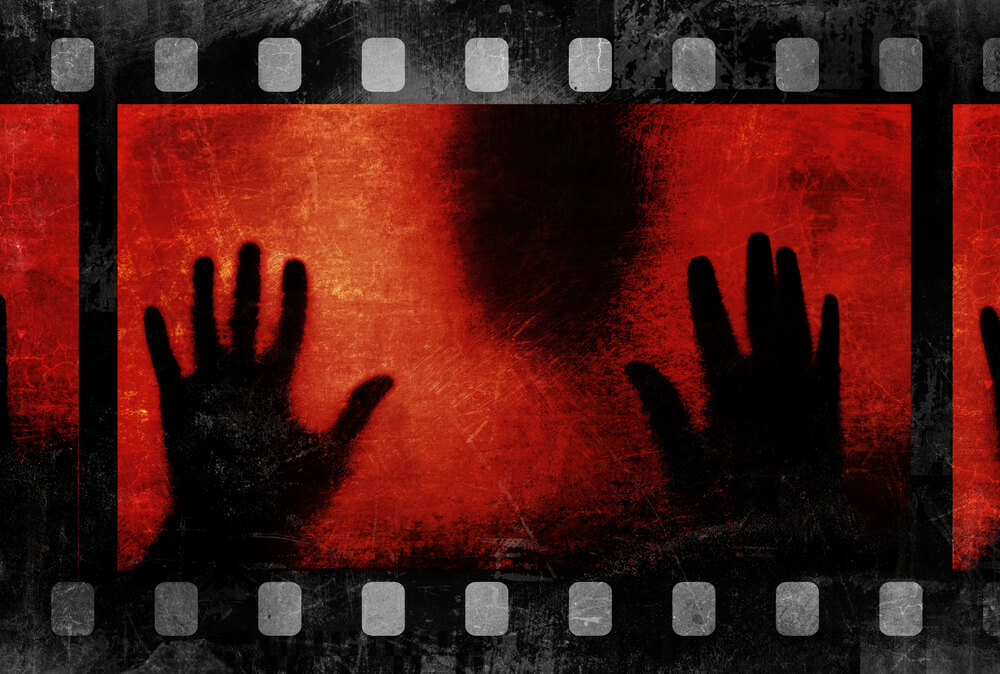
Can Horror Movies Cause Anxiety?
Humans are oddly fascinated by those things that scare us. Whether it’s rollercoasters, skydiving, true crime documentaries on Netflix, or yes, even the annual thirty days of horror movies that arrive every October on various movie networks. Whether horror movies are your “go-to” date night staple, or you are more of a seasonal fan, it can sometimes be fun to take in a few ghosts, ghouls, and gremlins. But how does watching night after night of on-screen terror affect one’s mental health? Considering it is not uncommon for people to be triggered by what they watch, it begs the question, how do horror movies affect anxiety?
Do people who struggle with anxiety disorders experience increased symptoms when they watch horror movies? Or is the opposite accurate, and perhaps horror movies can help those already seeking therapy for their anxiety at a recovery center like Meadowglade in Moorpark, California?
What Happens to Your Body When You Watch A Scary Movie?
To better understand how horror movies may impact anxiety (either positively or adversely), it helps to understand the impacts that being scared has on you-both physically and mentally. While many people enjoy suspense and having their heart skip a beat, they sometimes find themselves fearful long after the final credits roll. This is due to how the brain is wired. It treats what it sees on the big screen as real, and it becomes challenging to determine fact versus fiction.
The Brain
Horror movies can trigger reactions in those who suffer from anxiety (and other disorders such as post-traumatic stress disorder). Since the brain cannot tell the difference between fantasy and reality, memories related to specific events or situations shown in the movie that contain triggering elements can cause increased anxiety. This is even more true of children watching horror movies at a young age where they are less able to separate real-life events from those portrayed on film.
Although horror movies do not directly positively impact the brain, people can eventually become desensitized to them. If someone frequently watches this specific movie genre, they repeatedly expose themselves to the shock of threatening images and, over time, become less emotionally reactive. This can result in lower levels of anxiety and fear.
Your Heart
As with other activities that raise your adrenaline level, watching scary movies can increase your heart rate. These effects are not unlike what happens when doing other thrill-seeking activities such as riding roller coasters, skydiving, or auto racing. Horror movies can even affect heart attack risk in those with preexisting heart conditions or who are prone to cardiac issues. If the physical and psychological responses come together at precisely the right time, a heart attack may occur for these individuals. Therefore, individuals with high blood pressure may be at more risk than others because heart attack and stroke are related to high blood pressure. However, for many, the shock that ensues from being scares results in a few moments of pulse-pounding and rapid breathing that eventually subsides.
Your Hormones
Watching horror movies releases dopamine and adrenaline. These two hormones play an essential part in the body’s stress response system, which is vital to threats, either real or perceived. Most people are familiar with the “fight or flight” response, which is activated under situations of a perceived or actual treat but can also be triggered when watching a horror movie. When these hormones are released, they circulate through the bloodstream to the brain and act on specific sites that control how energy is mobilized. The immediate effects include excitement, increased heart rate, opening your lungs, sending more blood to the muscles, and constricting the blood vessels. All of these, your body deems essential to running from a threat or stand and fight. Prolonged exposure to dopamine and adrenalin can eventually create adverse psychological and physical outcomes. Over time, the effects of neurotransmitters that affect mood and emotion are reduced.
Unfortunately (or perhaps, fortunately), the fight or flight response and how the brain initially reacts to fear is unavoidable. Evolution has dictated how the mind and body respond to ensure personal survival if we are placed in a dangerous situation. Once the brain determines we are not in a threatening situation, other parts of the nervous system begin working to reverse the initial effects of the fear response. This is why we may jump or perhaps even scream when something happens in a movie, but we don’t necessarily get up and run out of the room. We can recognize the threat is not “real,” and we can calm down.
Can Horror Movies Help Someone with Anxiety?
It may seem counterintuitive to think watching a horror movie when you’re struggling with fear or anxiety could be beneficial. However, some viewers find horror oddly comforting. While there aren’t any empirical studies on how scary movies could improve anxiety, it is not surprising that some people with anxiety use horror films to alleviate their worries. Mental health experts believe there are a few reasons why some with anxiety enjoy horror movies and how they can actually help with some of the symptoms.
Horror Movies Can Be A Helpful Distraction
For many with anxiety, a significant portion of their daily worry and fear is placed in the unknown. There are chronic concerns about “what if” and “what happens when.” In some cases, these events may never happen, but regardless, they continue to instill deeply rooted worry and stress. For these people, horror movies may provide a tangible fear where they can focus their minds. Because people with anxiety often struggle to stay present in the moment, movies can help refocus their attention. Getting caught up in a scary movie’s plot can be an appealing distraction or outlet for someone who is consistently pulled down by personal fears. For example, instead of worrying about a disagreement they had with their mother-in-law last week, they can focus on fearful stimuli unrelated to their lives, such as a car that comes to life when it is upset about its owners’ decisions.
Horror Movies Can Help Validate or Normalize Anxiety
For some people with anxiety, watching a horror movie is a way to confirm the fear-inducing triggers they encounter each day. For some, it is a way to verify that the world around us is indeed an anxiety-producing place. For others, it is a means to place their symptoms in a broader context that includes worse events. Horror movies can help verify that “yes, you are anxious, but it could be so much worse. Just look at the person on TV.”
Horror Movies Provide a Sense of Control
While anxiety about everyday issues like work, health, or relationships can be overwhelming for anyone, the sense of anxiety people feel when watching a scary movie feels more within our realm of control. Horror movies provide a way for someone who is anxious to experience their emotions in a safe, controlled manner. If the anxiety becomes too overwhelming, they can look away or even change the channel. And because most horror movies end with the “bad guy” being defeated, it provides viewers a sense that if they can tolerate their anxiety for a short time, it will be OK at the end. This is reassuring for many who are anxious.
Horror Movies Can Be A Type of Exposure Therapy
Exposure therapy is a therapy model that was developed to help people confront their fears. When we are afraid of something, we tend to avoid that feared object or situation. Although this may help reduce feelings of fear in the short term, it can make the fear worse over the long term. During exposure therapy, the individual is exposed to the item or situation they fear in a safe, controlled environment, eventually reducing fear and avoidance.
The controlled environment of watching a horror movie can help people with anxiety practice working with and resolving intense or uncomfortable situations. Horror movies can expose viewers to the physical sensations of anxiety in similar ways to exposure therapy. In the end, the individual learns that the fear is not as bad as they initially thought it would be. The person watching the movie (and the person participating in exposure therapy) can see that even though their palms are sweating, and their heart is racing, they aren’t in danger. This can help in future sensations where physical sensations of anxiety are present. In these cases, an individual can remember that even though their body is preparing for possible danger, it is likely just a false alarm.
Although watching horror movies can make some people with anxiety feel more relaxed and present, this coping mechanism should be used with caution. It is possible that the fear-inducing content of horror films could further trigger an individual. For example, suppose your day-to-day anxiety is about something terrible happening to your family. In that case, you may feel more anxious or fearful after watching a movie with that subject matter. In the end, this can leave you feeling more anxious than you were before watching the movie. Also, trauma survivors or anyone who’s experienced acute life-threatening anxiety may need to avoid horror films as a form of self-care until broader coping tools such as those learned in a treatment program like Meadowglade are in place.
Fortunately, there are many tools and strategies to help people handle anxiety. Although horror movies may be one such tool, therapy and more traditional coping strategies may be better suited for some people. For those who already enjoy the genre, there may be substantial benefits. Ultimately, the helpfulness of horror films for people with anxiety depends on the way they use it. If you turn to horror films as a form of pure distraction from your anxiety, it may not be the best approach. The challenge of anxiety is that when we avoid the people, places, or situations that cause anxiety, the symptoms do not get better. In fact, they only get worse over time. The best thing to do is to confront anxiety head-on through whatever therapy or treatment means best suit your needs. If you are not sure where to start, contact our admissions team here at Meadowglade. Allow our caring and compassionate staff guide you along the path to recovery.
Resources
https://www.apa.org/ptsd-guideline/patients-and-families/exposure-therapy
